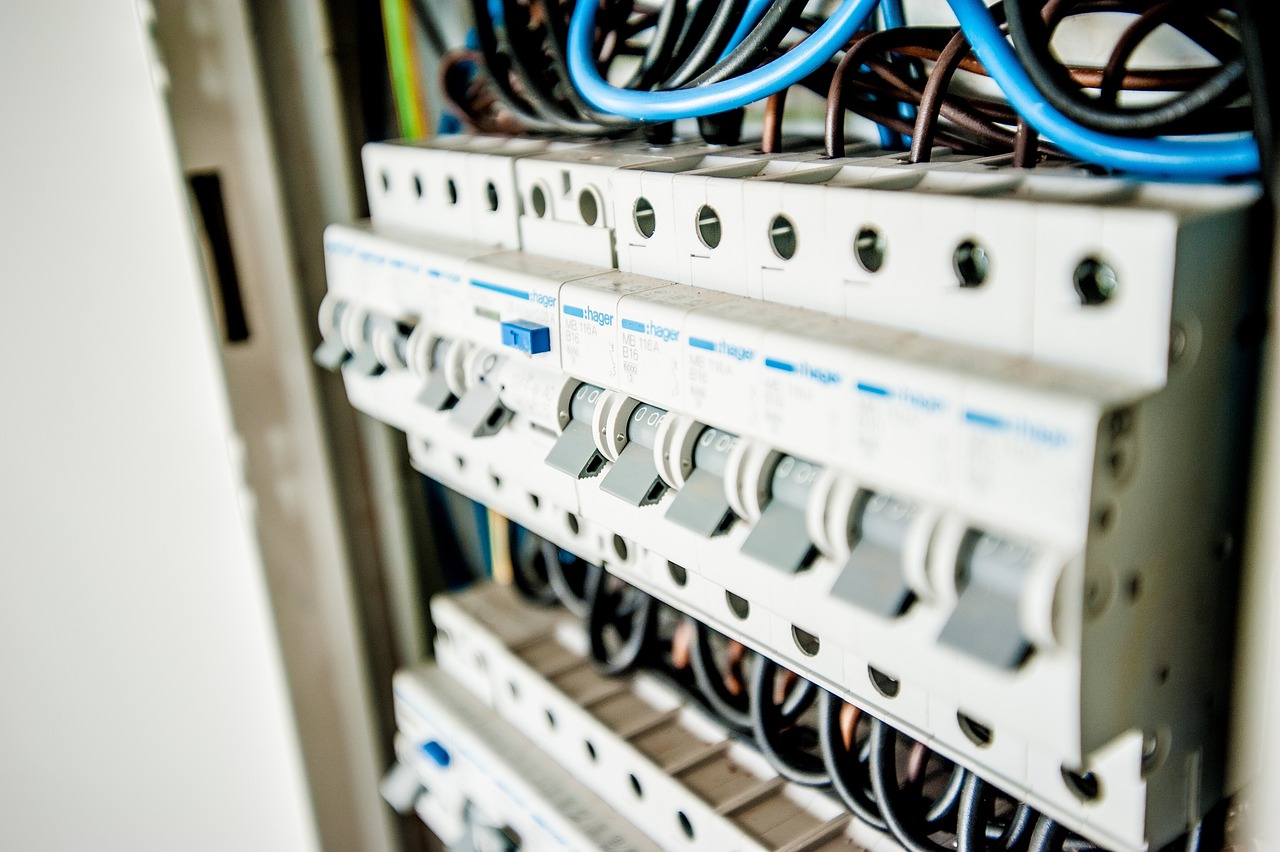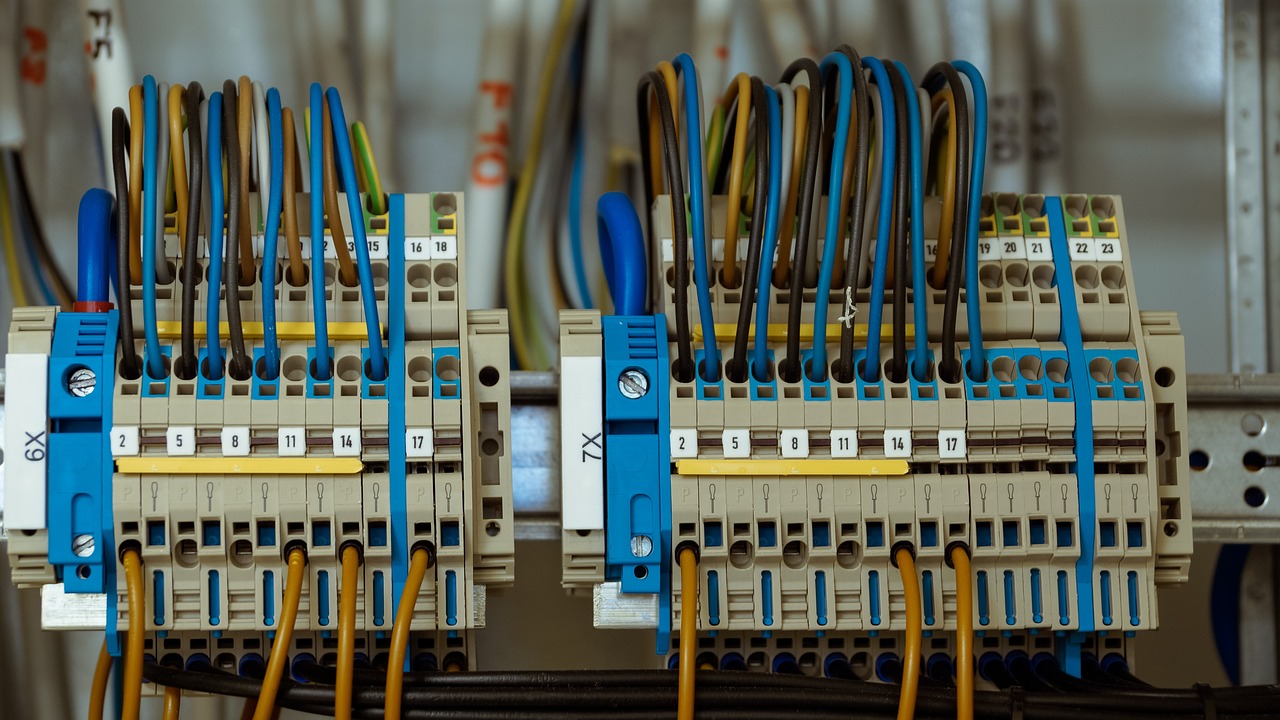Are you planning to rewire your home? If so, you will need to have a conversation with your electric contractor about the process. But what if you don’t understand the technical terminology? Don’t worry! In this article, we’ll help you decode the jargon so you can have a productive conversation with your contractor.
First, we’ll explain the difference between wires and cables. You might be surprised to learn that these terms are not interchangeable.
Then, we’ll dive into circuit breakers and why they are important for keeping your electrical system safe.
We’ll also cover grounding and bonding, which are crucial for preventing electrical shock and fire hazards.
Finally, we’ll give you a primer on electrical units like amps, volts, and watts, so you can understand how much electricity your home needs.
By the end of this article, you’ll be ready to talk to your electric contractor with confidence!
Wires vs. Cables: Understanding the Difference
You might be feeling confused about the difference between wires and cables, but don’t worry, we’ll break it down for you.
Wires are single conductors made of copper or aluminum, and they come in various sizes called wire gauges. The smaller the gauge number, the larger the wire diameter. For example, a 14-gauge wire is thicker than a 16-gauge wire and can handle more electrical current. Wires are usually used for low voltage applications, such as doorbells, thermostats, or speaker systems.
On the other hand, cables are made of multiple wires that are wrapped together and insulated. The insulation protects the wires from each other and from the environment. There are different types of cables, such as twisted pair cables, coaxial cables, and fiber optic cables, each designed for a specific purpose.
Twisted pair cables are commonly used for data transmissions, coaxial cables for TV or internet connections, and fiber optic cables for high-speed internet or long-distance communication. When talking to your electric contractor about rewiring, it’s important to understand the difference between wires and cables and which one is suitable for your needs.
Circuit Breakers: What They Do and Why They Matter
Circuit breakers are essential for protecting your home’s electrical system from overloading and potential damage. They’re designed to automatically shut off the flow of electricity when an electrical overload or short circuit occurs. This action prevents the wires from overheating, catching fire, and causing other serious hazards.
There are different types of circuit breakers, including standard, AFCI, and GFCI. Standard circuit breakers protect against overloading, while AFCI (arc-fault circuit interrupter) breakers protect against electrical arcs, which can cause fires. GFCI (ground-fault circuit interrupter) breakers protect against electrical shock by immediately cutting off the power in the event of a ground fault.
It’s important to make sure that the circuit breakers in your home have the appropriate electrical load capacity for the appliances and electronics you’re using. Overloading a circuit can cause the breaker to trip, which can be inconvenient and potentially dangerous.

Grounding and Bonding: Ensuring Safety in Your Electrical System
Ensuring the safety of your home and loved ones is crucial, which is why grounding and bonding are essential components of any electrical system.
Grounding refers to connecting an electrical circuit to the ground, while bonding involves connecting metal parts of the electrical system to each other. Together, they help prevent electrical shock, fires, and equipment damage.
Electrical codes mandate that all electrical systems be grounded and bonded to ensure safety. It’s important to ensure that all equipment used in the electrical system is compatible with the grounding and bonding system. Your electric contractor can help ensure that your system meets all codes and standards for grounding and bonding, and can advise you on any necessary upgrades or repairs to ensure your home’s safety.
Amps, Volts, and Watts: A Primer on Electrical Units
Understanding the basics of amps, volts, and watts is essential for anyone working with or using electrical systems.
Amps (short for amperes) measure the current flow in an electrical circuit. It’s the rate of flow of electric charge in a conductor. Electrical resistance, measured in ohms, is the opposition that the flow of electric current encounters in a circuit.
Ohm’s law states that the current in a circuit is directly proportional to the voltage and inversely proportional to the resistance.
Volts (short for voltage) is the measure of electrical potential difference between two points in a circuit. It’s the force that drives the current flow in a circuit.
The power that is consumed in a circuit is measured in watts and is calculated using the power equation. Understanding the relationship between amps, volts, and watts is essential for any electrician. It’s the foundation of electrical theory and practice.
Upgrading Your Electrical Panel: When and Why it’s Necessary
Upgrading your electrical panel can be a game-changer for your home’s energy efficiency and safety. One of the most common reasons to upgrade your electrical panel is if your current panel capacity is not sufficient for the electrical demands of your household. This can be due to outdated equipment, an increase in the number of electrical devices in the home, or if you’re adding an addition to your home.
An overloaded panel can lead to tripped breakers, fires, or even electrical shock, so it’s essential to have a panel that can handle your electrical needs safely. Another reason to upgrade your electrical panel is if you’re experiencing frequent power outages or flickering lights. This can be a sign that your current panel is struggling to keep up with the electrical demand in your home.
Upgrading to a higher-capacity panel can help ensure that you have a reliable source of power and eliminate the frustration of dealing with frequent outages. If you’re experiencing any of these issues or have concerns about the safety of your electrical panel, it’s essential to contact a licensed electrician to assess your needs and recommend an appropriate upgrade.
Frequently Asked Questions
How much does it cost to rewire a house?
To rewire a house, cost breakdowns vary depending on the size of the property, complexity of the job, and materials used. Budget planning is crucial, as rewiring can cost anywhere from $3,500 to $8,000 or more.
Can I do the rewiring myself or should I hire a professional?
If you’re not a licensed electrician, DIY rewiring is risky. Improper rewiring can result in electrical fires or electrocution. It’s best to hire a professional to ensure the safety and efficiency of your home’s electrical system.
How long does it take to complete a rewiring project?
When discussing a rewiring project with your electric contractor, ask for a timeline estimation. The timeframe will depend on the size of your home and complexity of the project, but a professional should be able to give you an estimated completion date.
What kind of permits are needed for a rewiring project?
To rewire your home, you’ll need to obtain the necessary permit requirements and undergo an inspection process. Make sure to consult with your local government and electrician to ensure compliance and safety.
What are the signs that indicate the need for rewiring?
To ensure electrical safety, upgrading outlets and checking for signs of wear and tear are crucial. Signs that indicate the need for rewiring include flickering lights, burning smells, and frequent power outages.
Conclusion
So now that you’ve got a better understanding of the terminology involved in rewiring, you can have more informed conversations with your electric contractor. Remember to always prioritize safety and make sure your electrical system is up to code.
If you’re unsure about any aspect of your electrical system, don’t hesitate to ask questions and seek professional help.
Also, keep in mind that upgrading your electrical panel may be necessary if you’re experiencing frequent power outages or if your current panel is outdated. Your electric contractor can help you determine if an upgrade is necessary and guide you through the process.
By staying informed and taking proactive measures, you can ensure that your electrical system is functioning properly and safely.



